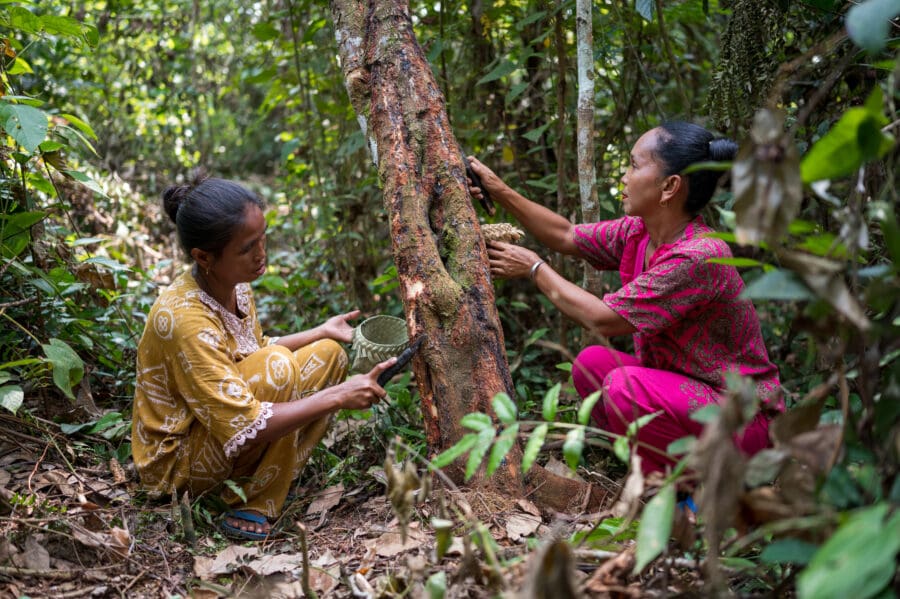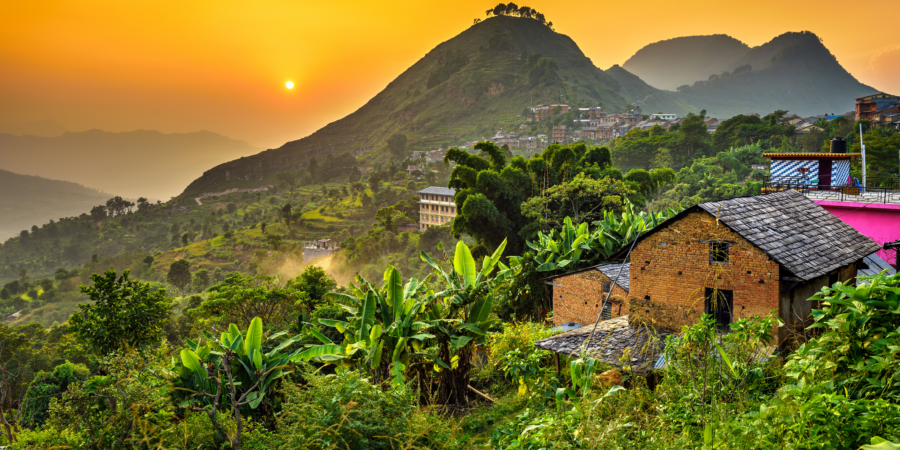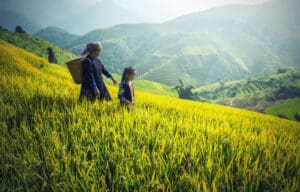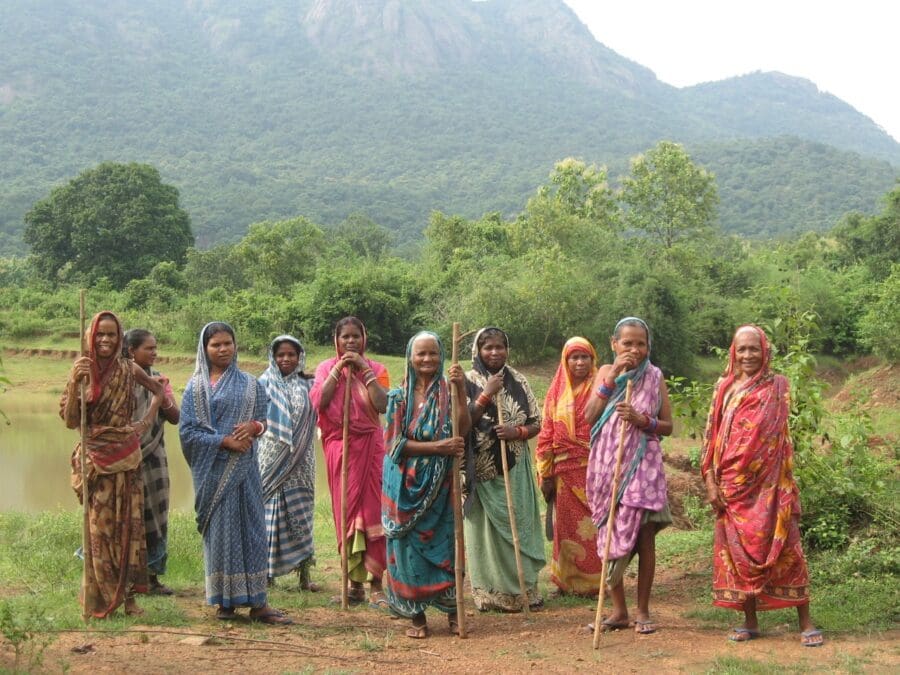Indigenous, Afro-descendant, and local community women and girls are often at the forefront of efforts to secure and defend their communities’ lands, forests, and freshwaters. However, all too often their rights to use, benefit from, govern, and protect these lands and resources are inadequately protected by national laws.
The 2030 Agenda for Sustainable Development and the 17 Sustainable Development Goals (SDGs) provide a shared blueprint for peace and prosperity for people and the planet, now and into the future. Achieving gender equality (SDG 5) and securing clean water and sanitation (SDG 6) are both crucial components of this Agenda.
November 14 marks Gender Day and Water Day at CoP27 in Sharm-El-Sheikh, Egypt. We must take a moment to recognize how Indigenous, Afro-descendant, and local community women and girls are leaders in climate change mitigation and adaptation and integral to attaining these two SDGs.
As CoP27 focuses on the implementation of climate policies and commitments, we need to move beyond lip services around gender equity to ensure gender justice and women’s collective land and water tenure rights are a key part of the climate finance ecosystem and that women and girls in the Global South have direct access to climate funding.
In Nepal, community women take the lead for SDGs 5 and 6
In Nepal, approximately 35% of forest land is under legally recognized community-based forest management. Community forestry user groups provide food security for millions of people, generate renewable and alternative energy, support community health and education initiatives, and help alleviate poverty and unemployment. In conjunction with thousands of community-based drinking water and sanitation user groups, their collective stewardship of forests also provides invaluable watershed benefits for both rural and urban users—ensuring clean water for drinking, sanitation, and irrigation. In turn, resources generated from these ecosystem services are re-invested into communities.
Moreover, the working committee of the community forest consumer group is governed by a democratic system where at least 50% of their leadership and decision-making bodies must be women. RRI Partner, the Federation of Community Forest Users Nepal (FECOFUN), is another great example with a similar quota for women.
Yet, women in Nepal continue to face accessibility challenges to basic rights, including water. Many governments have not adequately recognized the invaluable contributions rural and Indigenous women make in achieving the country’s SDGs targets, and the requirements of national law to form distinct user groups to manage community forests, drinking water, irrigation water, and water for other consumptive purposes are cumbersome.
Globally, legal protections for women and girls’ rights to use and govern community freshwater remain elusive. While RRI research has found that communities’ rights to use and govern freshwater exist in 14 of 15 countries studied, considerable legislative gaps remain. In fact, only one-third of 39 legal frameworks recognizing community-based freshwater tenure across the 15 countries protect women’s rights to use or govern community waters, showing us that there is still a long way to go before achieving SDGs 5 and 6.
Indigenous and community women and girls’ contributions to protecting Earth’s vital ecosystems—including freshwater—should be recognized and rewarded as key contributors to achieving the 2030 Agenda.
Legal reforms: Recent achievements and pathways for improvement
Last month, the UN Committee that oversees implementation of the Convention on the Elimination of Discrimination Against Women (CEDAW) took a big step forward by adopting General Recommendation No. 39 on the Rights of Indigenous Women and Girls. It is the first CEDAW General Recommendation focused on elaborating the rights of Indigenous women and girls and responds to a long-standing demand for a specific instrument to promote and protect their rights. Importantly, the General Recommendation emphasizes self-determination and recognition of the rights of Indigenous women and girls to their customary lands and natural resources, including water.
RRI has been decisively involved in this process for years. In 2021, the Coordinator of the Continental Network of Indigenous Women of the Americas (ECMIA) and the National Organization of Andean and Amazonian Indigenous Women of Peru (ONAMIAP)—in coordination with the International Forum of Indigenous Women (FIMI)—filed a petition to the CEDAW Committee advocating for the protection of 26 million Indigenous women and girls in Latin America.
And, in early 2022, our Strategic Response Mechanism provided crucial funding to ECMIA and ONAMIAP to advance the review of the Recommendation and ensure its adoption.
Scaling-up climate finance for Indigenous, Afro-descendant, and local community women and girls and their self-determined priorities
Despite the role of Indigenous, Afro-descendant, and local community women and girls in using, managing, and conserving community territories and the water that flows through those territories, gender-inclusive climate finance remains grossly inadequate. How can we begin to rectify this injustice, and ensure these women and girls are receiving their fair share and that their contributions to achieving the 2030 Agenda are recognized?
Formally launched last week at CoP27 in Egypt, the Women in Global South Alliance for Tenure and Climate, collaboratively developed by RRI and 41 rightsholder organizations and their allies, advances women’s empowerment worldwide by advocating for climate finance to directly reach Indigenous, Afro-descendant, and local community women and girls on the frontlines of climate action and biodiversity conservation.
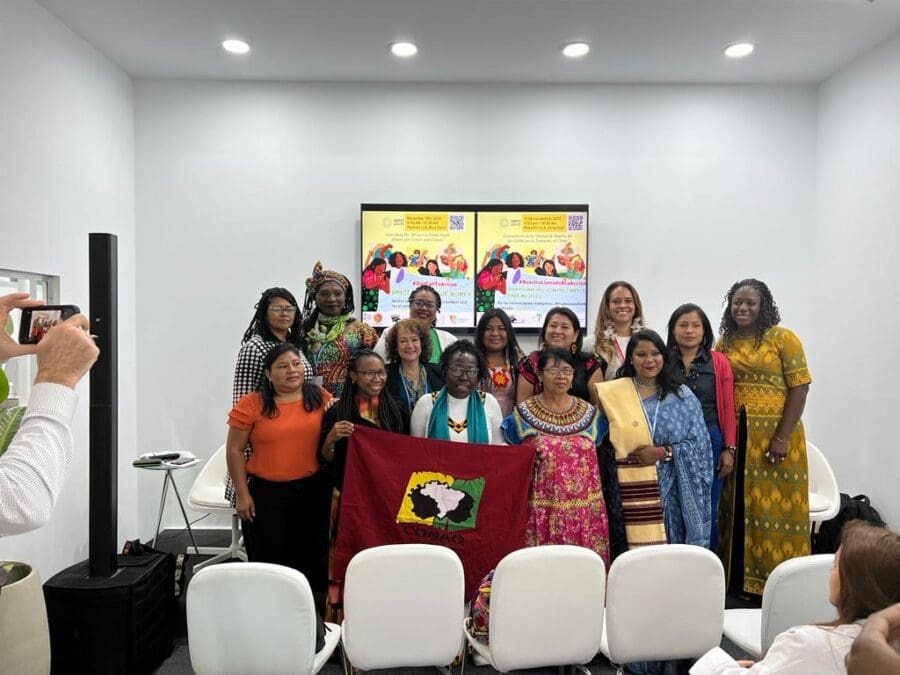
“Climate finance must not leave behind Indigenous, Afro-descendant, and local community women and girls behind,” said Archana Soreng, a youth climate activist from the Kharia Tribe in India and member of the UN Secretary General’s Youth Advisory Group on Climate Change.
“We are working on a global issue that needs global perspectives which is what the formation of this new women’s alliance is about.”
Earlier this year, the Women in Global South Alliance for Tenure and Climate together with RRI developed and launched Our Call to Action. The Call outlines key recommendations for donors on what priority initiatives Indigenous, Afro-descendant, and local women and girls would like to see direct funding allocated to.
In addition to advocating for systemic reforms at the international, regional, national, and local levels, the Alliance renders visible the leadership role Indigenous, Afro-descendant, and local community women and girls play in conservation and climate action, including preserving traditional knowledge and livelihoods, strengthening gender justice, and supporting human, land, and water tenure rights movements.
International climate finance must reach the women who are doing some of the heaviest lifting when it comes to protecting Earth’s natural resources, preserving traditional knowledge, and transmitting this knowledge to the next generation of leaders. If it doesn’t, achieving SDGs 5 and 6 will continue to remain far out of reach.

